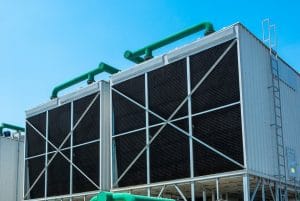 For as long as companies in various industries have relied on technology, they’ve also relied on the efficiency of electrical thermal management. Traditionally, that meant utilizing industry-grade air conditioners and/or air compressors to maintain low temperatures within electrical enclosures. Today, however, efficient thermal management is more often achieved with the help of modern heat exchangers instead of air conditioners or older solutions. Due to more streamlined and cost-effective cooling methods, heat exchangers are often more ideal, especially for meeting the needs of more innovative technological solutions.
For as long as companies in various industries have relied on technology, they’ve also relied on the efficiency of electrical thermal management. Traditionally, that meant utilizing industry-grade air conditioners and/or air compressors to maintain low temperatures within electrical enclosures. Today, however, efficient thermal management is more often achieved with the help of modern heat exchangers instead of air conditioners or older solutions. Due to more streamlined and cost-effective cooling methods, heat exchangers are often more ideal, especially for meeting the needs of more innovative technological solutions.
The goals of advanced electrical cooling
Electrical cooling with air conditioners and air compressors was sufficient when technological solutions were still in their earlier stages. However, as technology advanced, so did new applications’ thermal management needs, and heat exchangers quickly became a more efficient and reliable solution. In addition to rapidly removing waste heat to prevent electrical overheating, heat exchangers are also designed to operate continuously without much energy, and without requiring maintenance as frequently. This more than meets the goals of modern technologies, which center around making applications faster, stronger, more reliable, and more environmentally friendly.
The limitations of older thermal solutions
The limitations of older electrical cooling solutions can affect modern technological applications in various ways. For example, air conditioners and air compressors often require exorbitant amounts of energy, which can be a significant draw on a company’s overall operating expenses. With heat exchangers, electrical cooling is much more cost-effective, as the cooling units can consistently prevent overheating without relying on chilled air or other energy intensive processes. Also, air conditioners are often larger and require more frequent maintenance than heat exchangers, making them less ideal for more advanced technologies that are designed to streamline a company’s operations.
The advancements of heat exchanger technologies
While heat exchangers have always been known for being more efficient and reliable, they’ve become even more so as they’ve evolved to keep up with the increasing demands of advanced technologies. For example, in addition to making electrical cooling more efficient, heat exchangers today can also be utilized to help companies repurpose electrical waste heat to minimize the costs of other green energy initiatives. For industries that require specialized thermal management, such as the molding industry, heat exchangers can also provide the foundation for faster and more efficient solutions.
For more information about electrical cooling with heat exchangers versus air conditioning, call Noren Thermal Solutions in Taylor, TX, at 866-936-6736.







